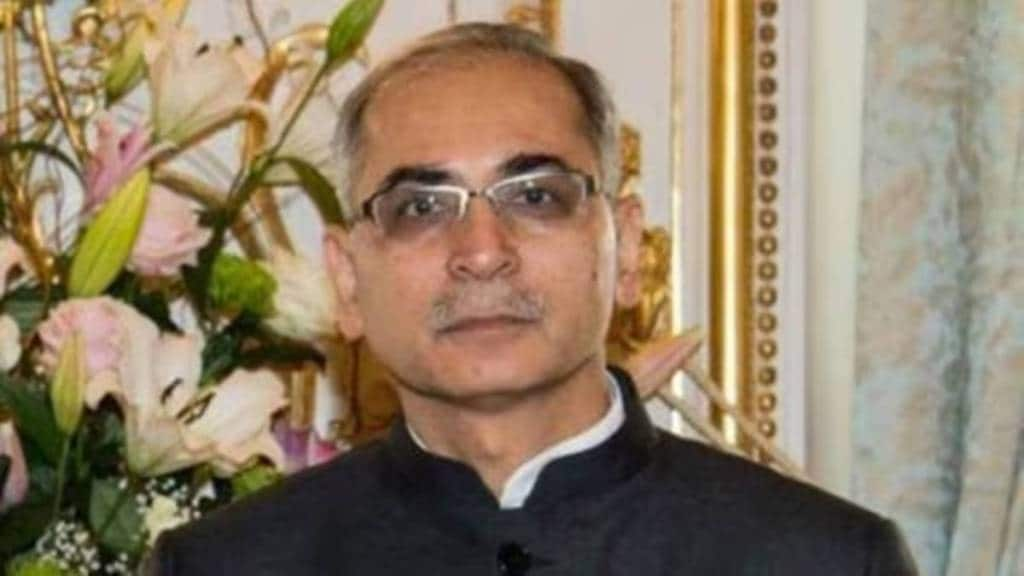Vinay Mohan Kwatra has been appointed as the next Ambassador of India to the United States of America, as announced by the Ministry of External Affairs (MEA) on July 19, 2024. Kwatra, a seasoned diplomat with extensive experience, is set to take up the assignment shortly, succeeding Taranjit Sandhu who retired in January. This pivotal role comes at a crucial time, with numerous challenges awaiting the seasoned diplomat.
Kwatra, a 1988 batch Indian Foreign Service (IFS) officer, recently concluded his tenure as Foreign Secretary on July 14, after over two years in the position. His diplomatic career spans several key postings, including serving as India’s envoy to France from 2017 to 2020 and as Ambassador to Nepal from 2020 to 2022. His previous assignments in Washington D.C., Beijing, Paris, and Kathmandu have equipped him with a robust understanding of international relations and strategic diplomacy.
The United States has officially accepted Kwatra’s appointment, following the necessary clearance from the State Department. This protocol ensures that all foreign mission appointments are mutually agreed upon by the respective countries.
Diplomatic Challenges Ahead
Kwatra’s appointment comes at a time when India-US relations are under considerable strain. In November 2023, the US Justice Department revealed the indictment of Nikhil Gupta, an Indian national, and a government agent allegedly involved in a foiled assassination attempt on US national Gurpatwant Singh Pannun. Pannun, the founder of Sikhs for Justice (SFJ) and designated as a terrorist by India, has been a contentious figure, adding tension to the bilateral relationship.
In June 2023, US authorities successfully thwarted the alleged assassination attempt, leading to Gupta’s extradition to the US last month. This incident underscores the complexities Kwatra will face in managing the delicate dynamics between New Delhi and Washington.
Modi’s Russia Visit and Diplomatic Repercussions
Another significant challenge for Kwatra will be addressing concerns raised by senior American officials regarding Prime Minister Narendra Modi’s recent visit to Russia. The visit coincided with a NATO summit in Washington D.C., celebrating the military alliance’s 75th anniversary. Reports indicated that Kurt Campbell, the US Deputy Secretary of State, had spoken with Kwatra, then India’s Foreign Secretary, about possibly rescheduling Modi’s visit to avoid diplomatic friction. However, the visit proceeded as planned, highlighting the intricacies of balancing India’s strategic partnerships with global powers.
Navigating a Potential New Administration
The upcoming US presidential elections in November pose another layer of complexity. Should Donald J Trump and the Republican Party win, Kwatra may have to navigate a new administration with potentially different foreign policy priorities. Recent polls indicate a close race between Trump and incumbent President Joe Biden, adding uncertainty to the diplomatic landscape.
Kwatra’s Diplomatic Expertise
His extensive diplomatic background includes a tenure as Minister (Commerce) at the Indian Embassy in Washington D.C. from May 2010 to July 2013. He has also served twice in China, first as a Counsellor and then as Deputy Chief of Mission at the Indian Embassy in Beijing. His role in implementing the Rafale jet deal, which involved India’s purchase of 36 jets from France, underscores his capability in handling complex international negotiations. Fluent in French, Kwatra is well-versed in India’s geostrategic challenges and partnerships.
Strategic Importance of Kwatra’s Role
His experience and expertise will be crucial in navigating the multifaceted challenges that lie ahead. From addressing bilateral tensions to managing the potential shift in US administration, his role will be pivotal in steering India-US relations through a complex and dynamic geopolitical landscape. His seasoned diplomacy and strategic acumen are expected to bolster India’s presence and influence in Washington, reinforcing the importance of strong bilateral ties between the two democracies.


